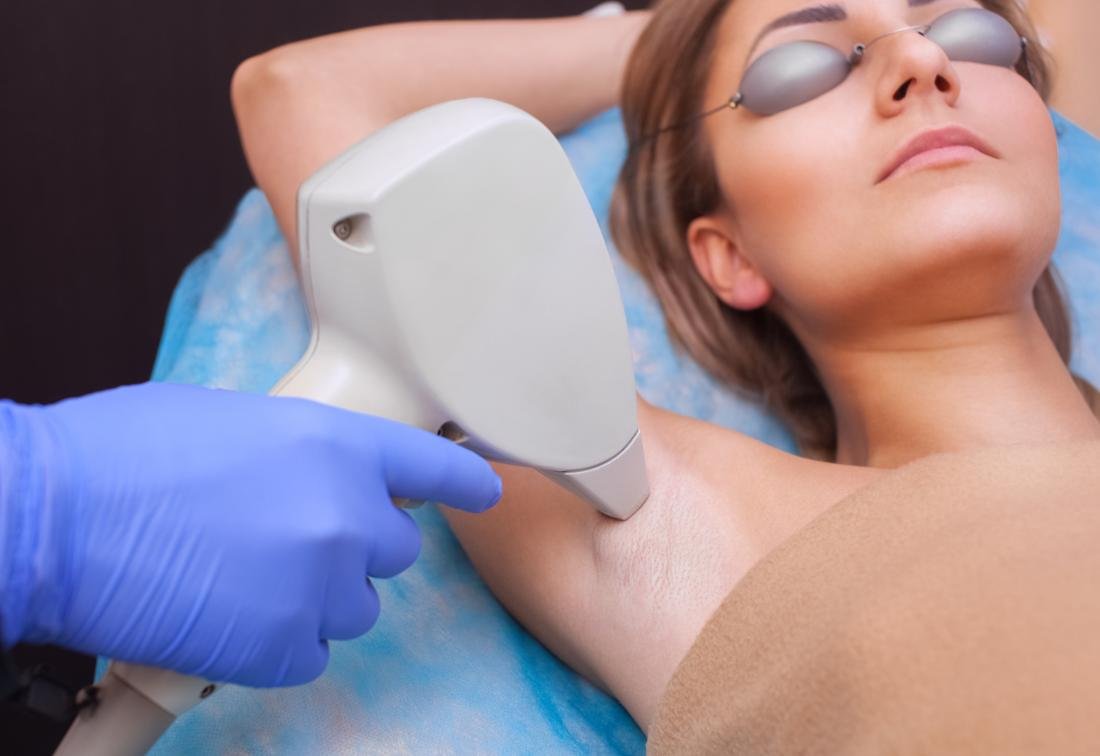Laser hair removal is a popular and effective way to permanently reduce unwanted hair, offering long-term results with minimal discomfort. However, one common question people have after undergoing this treatment is, Can you swim after laser hair removal(هل يمكنك السباحة بعد إزالة الشعر بالليزر) While laser hair removal is generally safe, it’s essential to follow specific aftercare guidelines to ensure optimal results and avoid complications. In this article, we’ll explore whether swimming is safe after laser hair removal and what precautions you should take to protect your skin during the recovery period.
Understanding Laser Hair Removal and Its Effects:
Laser hair removal works by targeting the pigment in hair follicles with a concentrated beam of light, which destroys the hair follicle, preventing future hair growth. The procedure is effective on various areas of the body and is commonly used for facial hair, legs, arms, and bikini lines. Although laser hair removal is non-invasive, it can leave the skin temporarily sensitive or irritated due to the heat generated by the laser. Understanding this helps explain why swimming right after the procedure may not be advisable, as the skin may be more vulnerable to certain irritants, such as chlorine or bacteria in pools.
Why You Should Avoid Swimming Immediately After Laser Hair Removal?
After laser hair removal, it’s essential to take good care of your skin to prevent irritation or complications. Swimming in pools, hot tubs, or natural bodies of water too soon can increase the risk of side effects. Here’s why:
- Skin Sensitivity: Immediately after laser hair removal, your skin is often red, irritated, and sensitive. Swimming in chlorinated pools or saltwater can exacerbate this irritation, leading to discomfort or even a rash.
- Risk of Infection: The tiny openings left in the hair follicles by the laser treatment can make the skin more susceptible to bacterial infections. Swimming in water that may not be completely sterile can increase this risk.
- Chemical Exposure: Pools often contain chlorine or other chemicals, which can irritate sensitive skin after a laser treatment, leading to further inflammation or even discoloration.
- Sun Sensitivity: Laser-treated skin can also become more sensitive to sunlight. Swimming in outdoor pools or at the beach increases your skin’s exposure to UV rays, which can cause hyperpigmentation or even scarring.
How Long Should You Wait Before Swimming After Laser Hair Removal?
The ideal time to wait before swimming after laser hair removal depends on several factors, including the area treated and your skin’s reaction to the procedure. However, most experts recommend waiting at least 24 to 48 hours before engaging in any water activities. During this period, the skin is still recovering, and swimming can interfere with the healing process. In some cases, you may be advised to avoid swimming for up to a week or longer.
To give you a general idea of the recommended waiting times:
- Pools or Hot Tubs: Wait at least 48 hours (2 days) after your laser hair removal treatment before swimming in a chlorinated pool or hot tub.
- Natural Bodies of Water (Lakes, Oceans): It’s best to avoid swimming in lakes, rivers, or oceans for at least one week after laser hair removal due to the risk of bacterial contamination and exposure to environmental pollutants.
- Saunas or Steam Rooms: Similarly, avoid saunas and steam rooms for at least 48 hours to prevent further irritation and discomfort.
Tips for Protecting Your Skin After Laser Hair Removal:
While you should avoid swimming immediately after laser hair removal, there are other important aftercare tips that can help you protect your skin and maximize the benefits of the treatment:
- Keep the Treated Area Clean and Moisturized: Gently cleanse the treated area and apply a soothing, fragrance-free moisturizer to reduce dryness and irritation. Aloe vera gel or hydrocortisone cream can also be helpful for calming the skin.
- Avoid Sun Exposure: Your skin will be more sensitive to UV rays after the procedure, so be sure to avoid direct sunlight for at least 2 weeks. If you need to go outside, wear a broad-spectrum sunscreen with an SPF of at least 30 to protect the treated area.
- Avoid Tight Clothing: If the treatment was done on areas like the bikini line or underarms, wear loose-fitting clothing to reduce friction and allow the skin to breathe.
- Stay Hydrated: Drinking plenty of water helps support the healing process and keeps your skin hydrated, which is important for minimizing irritation.
When Can You Safely Return to Swimming?
After the initial recovery period, you can typically return to swimming once your skin has healed and the risk of irritation or infection has passed. If you’re uncertain about when it’s safe to swim after your specific laser hair removal session, here’s what to keep in mind:
- Monitor for Redness or Swelling: If the treated area is still red, swollen, or inflamed after 48 hours, it’s best to wait longer before swimming.
- Check with Your Practitioner: Always follow the advice of your dermatologist or laser technician, as they can give you personalized aftercare instructions based on your skin type and the area treated.
- Gradually Reintroduce Swimming: If you’re unsure whether the treated skin is fully recovered, consider starting with short periods of swimming in a pool with clean water before moving on to other bodies of water, like oceans or lakes.
Conclusion:
In conclusion, swimming immediately after laser hair removal is not recommended due to the increased risk of irritation, infection, and prolonged healing. It’s best to avoid swimming for at least 48 hours after the procedure and, in some cases, up to a week or longer, depending on the area treated and your skin’s sensitivity. Always consult with your treatment provider for personalized aftercare instructions and be sure to protect your skin from chemicals, bacteria, and UV exposure during the healing process. By following these precautions, you can ensure a smoother recovery and optimal results from your laser hair removal treatment.
















Leave a Reply